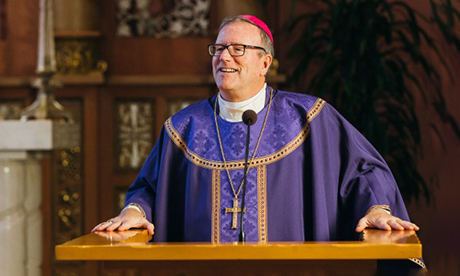According to a well-known US bishop, dumbing down the Catholic Church by making it more simple and appealing to the mainstream culture has proved disastrous.
In his Sunday sermon, Bishop Robert Barron said, “Dumbed down Catholicism has not helped evangelisation. Quite the contrary, we did this to ourselves”.
The bishop is a controversial figure on both the secular left and right for his nonpartisan ethical advice and largely apolitical social advocacy.
Barron, 62, of the Dioceses of Winona-Rochester, is the most widely-followed online Catholic cleric in the country aside from Pope Francis. His public influence stretches worldwide via his books, videos, radio shows and documentaries with his Word on Fire ministries.
“So, in a way, we met the enemy, and it’s us. We did such a bad job as teaching our faith and making it beautiful and making it intellectually compelling,” Barron told Fox News Digital in an exclusive interview.
“Many of the disaffiliated [Christians who left their church and no longer claim religious affiliation] have said, ‘I never got my questions answered. I had all kinds of questions. I never got good answers'”.
Barron blamed the continuing decline of church attendance — at least in the Catholic rite — on weak spiritual education and a disordered emphasis on approachability.
He said, “We reduced religion — often to feel good — to ethics.”
Many traditionalist Catholics point to Vatican II as a reason for the decay in Catholic theological education.
Changes at Vatican II included dropping the requirement for masses to be said in Latin, a greater emphasis on church community, and modifying the liturgy to allow greater participation from the pews.
Barron dismisses critics of the council, saying instead that the damage was done after the council when priests and prelates failed to implement its ideas intelligently.
“[The errors occurred] after the council, not because of the council,” Barron said. “It was a pastoral disaster.”
In an attempt to reorient the church for the modern times, Barron argues too much emphasis was put on the temporal works of charity and justice — but at the cost of the crucial necessity of theology.
“The church was often reduced to ethics and more precisely, to social justice. Nothing wrong with ethics or social justice, but it was a kind of reductionism and the doctrinal element was underplayed,” Barron continued. “A caving in to the very relativistic culture held sway. So that’s been a problem for a long time.”
Sources
Additional reading
News category: Great reads, World.




